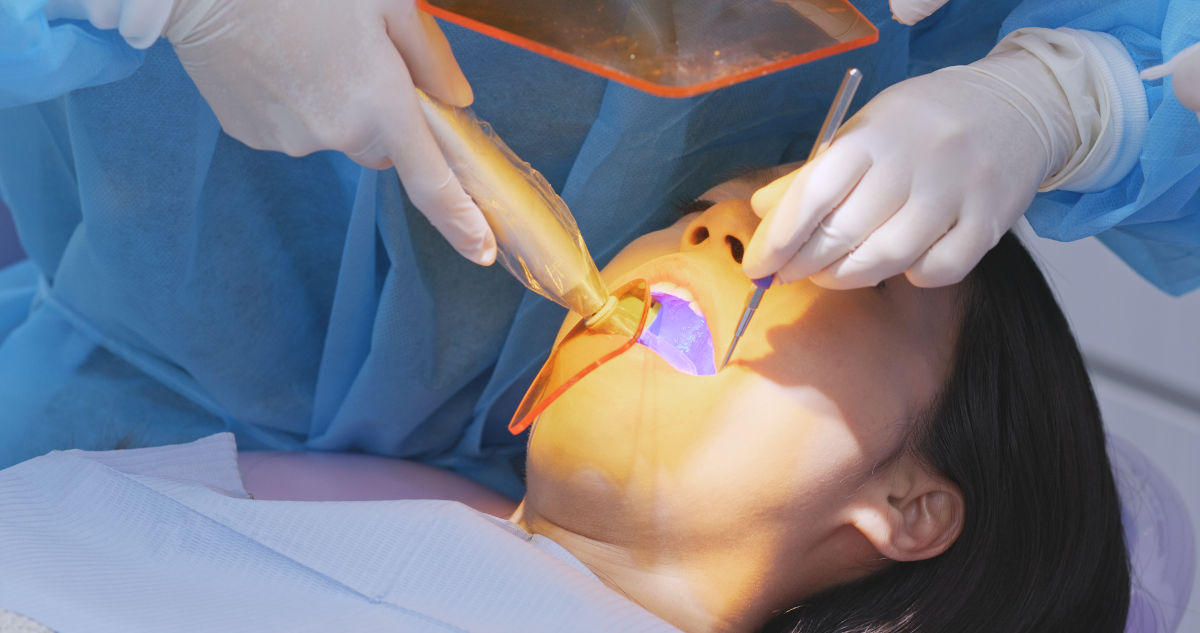Contents

Root Planing and Scaling: The Effective Solution for Periodontitis
Contrary to what its name might suggest, root planing and scaling is not a painful or frightening procedure. On the contrary, it is a non-surgical technique that effectively treats periodontal diseases by deep cleaning the roots of the teeth. Discover everything you need to know about this little-known yet highly beneficial procedure for the health of your gums.
What Does Root Planing and Scaling Involve?
Root planing and scaling, also known as a "deep cleaning," is a non-surgical periodontal procedure aimed at removing tartar (calculus) and bacterial plaque that have accumulated below the gum line, in the periodontal pockets. Its purpose is to disinfect and sanitize the entire periodontium, which includes the supporting tissues of the tooth: the gum, alveolar bone, and the root surface. While a standard dental cleaning is limited to the visible parts of the teeth, a deep cleaning treats the disease where it starts: below the gums.
How Long Does the Procedure Take?
Typically, a complete root planing and scaling procedure is carried out in one or two sessions, each lasting about one to two hours. The mouth is usually divided into quadrants, and the dentist or periodontist may treat one or two quadrants per visit. The local anesthesia makes the procedure completely painless. The process consists of:
- Scaling: The practitioner uses specific instruments (ultrasonic scalers and hand curettes) to meticulously remove tartar and plaque from the deep pockets.
- Root Planing: After scaling, the root surfaces are smoothed to remove bacterial toxins and create a clean surface that helps the gums reattach to the tooth.
What Is the Cost of Root Planing and Scaling in 2025?
The price of a root planing and scaling procedure is billed per quadrant. In 2025, the average cost per quadrant ranges from $200 to $450. A full-mouth treatment can therefore cost from $800 to over $1,800. This price depends on the severity of the disease and the practitioner's location. As a medically necessary treatment for periodontitis, it is typically covered by most dental insurance plans, often at 50-80% after the deductible has been met.
What to Expect After the Procedure: Recovery and Aftercare
After a scaling and root planing, it is normal to experience some gum sensitivity and tenderness for a few days. Minor bleeding may also occur but should subside quickly. To promote healing, it is important to:
- Avoid hard, hot, or spicy foods for 24-48 hours.
- Brush your teeth very gently with an ultra-soft toothbrush.
- Use a prescribed antiseptic mouthwash as directed.
- Do not smoke or consume alcohol for at least 72 hours, as they severely impede healing.
When Is Root Planing and Scaling Necessary?
Scaling and root planing is indicated in cases of active periodontitis. When periodontal pockets are deeper than 3-4 millimeters, a standard cleaning is no longer sufficient. A deep cleaning is necessary to:
- Eliminate the infection by removing the source: subgingival bacteria and tartar.
- Allow the gums to heal and reattach to the clean root surface, reducing pocket depth.
- Halt the progression of bone loss around the teeth.
How to Prevent Periodontal Disease?
Scaling and root planing is an effective treatment, but prevention is always better. To keep your gums healthy:
- Brush twice a day and floss daily to remove plaque.
- Get professional cleanings and check-ups at least twice a year.
- Manage risk factors like smoking and diabetes.
If you notice signs of gingivitis (red, swollen, bleeding gums), consult a dentist quickly before it progresses to periodontitis.
FAQ: Your Top Questions About Root Planing and Scaling
No, the procedure itself is not painful because it is performed under local anesthesia, which completely numbs your gums and teeth. You may feel some scraping or pressure, but not pain. Post-operative tenderness is normal and can be managed with over-the-counter pain relievers.
A regular cleaning (prophylaxis) is a preventive procedure that cleans plaque and tartar from above the gumline. Scaling and root planing is a therapeutic "deep cleaning" that removes tartar and bacteria from below the gumline, on the tooth roots, to treat active gum disease.
It cannot "cure" periodontitis in the sense of reversing bone loss that has already occurred. However, it is the most effective non-surgical treatment to stop the disease's progression, control the infection, and allow the gums to heal, preventing further damage and potential tooth loss.
